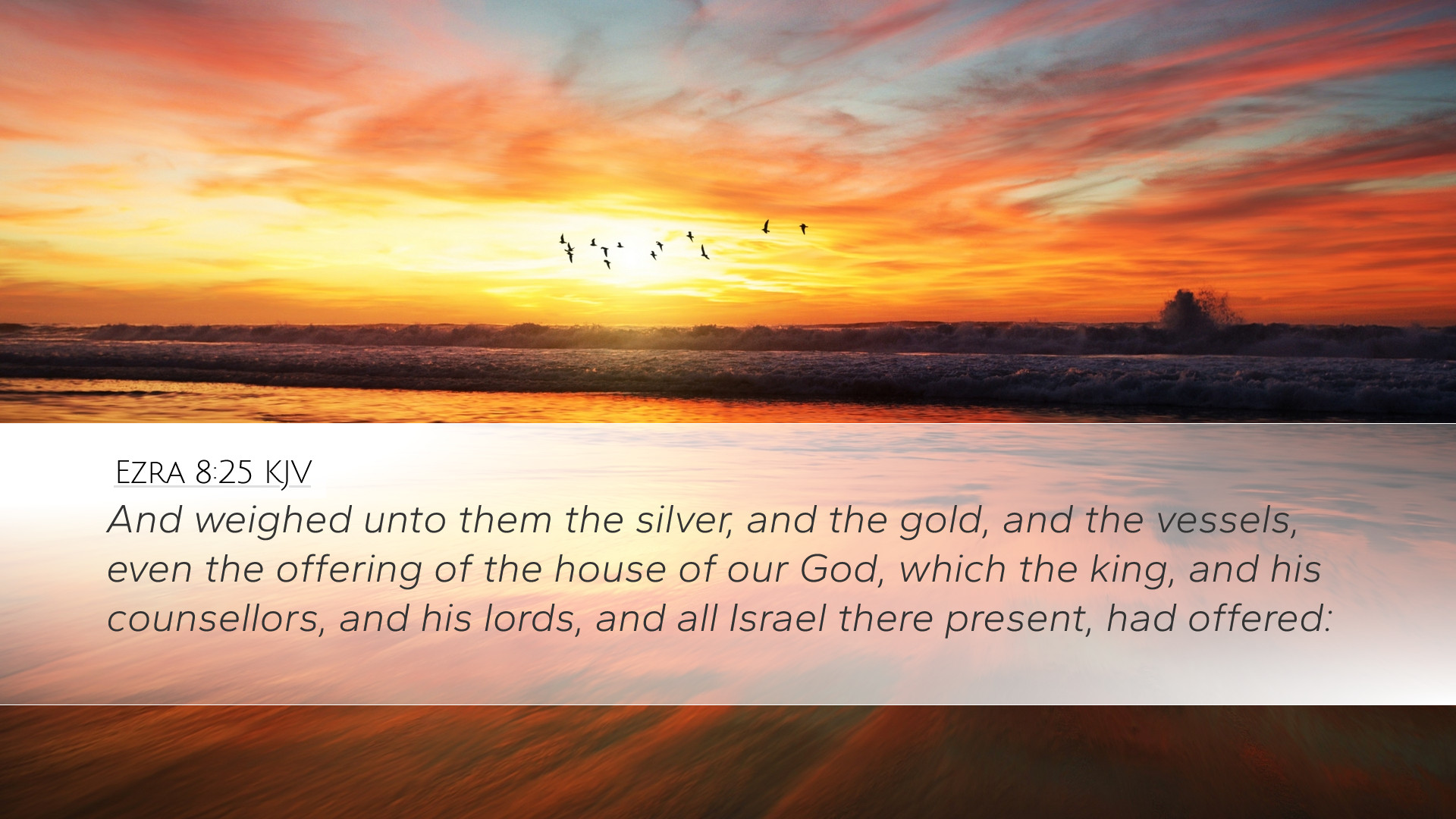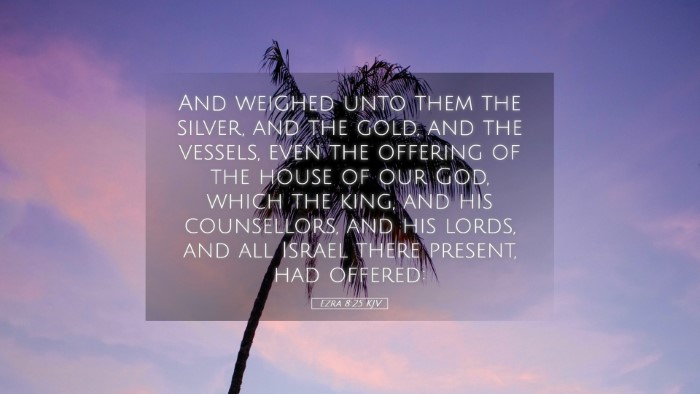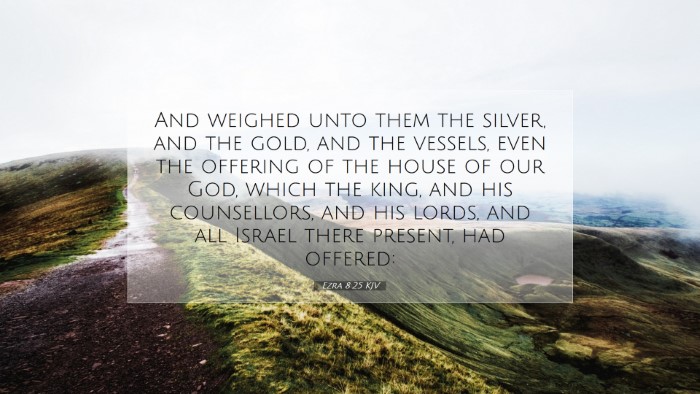Commentary on Ezra 8:25
Introduction
The verse Ezra 8:25 reflects a pivotal moment in the narrative of the return of the exiles from Babylon to Jerusalem. It captures the meticulous preparation undertaken by Ezra in the journey, reflecting both the seriousness of the mission and the deep reliance on God's provision and guidance. This commentary synthesizes insights from various public domain commentaries including Matthew Henry, Albert Barnes, and Adam Clarke.
Context of Ezra 8
As we unpack Ezra 8:25, it is crucial to consider the broader context of the chapter. Ezra is leading a significant return of the Jewish exiles, and the gathering of the people represents both a physical return to Jerusalem and a spiritual recommitment to the covenant with God. This chapter highlights themes of restoration, divine assistance, and the importance of sacrificial giving.
Exposition of Ezra 8:25
In this verse, Ezra is detailing the careful selection and distribution of offerings:
- Ezra's Leadership: Ezra takes on a significant role in the journey. His leadership is characterized by prayer and fasting, underscoring the spiritual depth of his mission (Henry).
- The Offerings: The verse mentions the offerings brought to the temple. These offerings were intended for the temple services, reflecting the community's dedication to worship and the sacrificial system. As Barnes notes, these were not just financial contributions but acts of worship and devotion.
- Assessing Needs: Ezra’s role in assessing and distributing the funds highlights the importance of stewardship. Each gift is allocated according to need, indicating a structured approach to resource management (Clarke).
Spiritual Implications
Ezra 8:25 serves not just as a historical account, but also as a spiritual lesson for today’s believers and leaders:
- Intentional Preparation: The careful gathering of silver and gold indicates that spiritual endeavors require preparation and planning. Prayerful consideration for what is needed in the work of God is essential (Henry).
- Faith in Divine Provision: Ezra's declaration of God’s protection over their journey exemplifies a profound faith. His decision not to ask the king for military support underscores a reliance on God rather than human means (Barnes).
- Importance of Community: The shared offerings reflect communal support and unity in worship. It emphasizes the role of each member in contributing to the collective mission (Clarke).
Theological Insights
This verse invites deeper theological reflections:
- God's Sovereignty: The successful return of exiles to Jerusalem is a demonstration of God's sovereignty and faithfulness to His promises. Ezra reminds us that God orchestrates circumstances for the fulfillment of His purposes (Henry).
- Redemptive History: Ezra’s mission is part of God’s overarching plan for redemption, preparing the way for the coming of Christ. The offerings symbolize a heart of worship that anticipates God's ultimate provision in Jesus (Barnes).
- Acts of Worship: The material offerings are an extension of spiritual worship. They signify the people's acknowledgment of God's lordship over their possessions, aligning with New Testament teachings on giving (Clarke).
Practical Applications
In light of the insights gained from Ezra 8:25 and its context, there are several practical applications for pastors, students, and scholars:
- Example of Leadership: Leaders should model trust in God while being diligent in planning. This balance is crucial for guiding communities in faith-based initiatives.
- Encouraging Generosity: Pastors can teach that generosity is a response to God's blessings and is integral to community life. The practice of allocating resources wisely can encourage spiritual growth.
- Prayerful Dependency: Encourage a culture that favors prayer and reliance on God rather than solely on human resources or governmental support, as exemplified by Ezra.
Conclusion
Ezra 8:25 showcases a moment of great significance within the narrative of the return from exile. It sheds light on the importance of careful preparation, communal unity, and unwavering faith in God’s provision. As we strive for restoration in our own contexts, this verse serves as a reminder to leaders, congregations, and individuals alike of the calling to engage in sacrificial worship and to trust deeply in the God who orders our steps.


